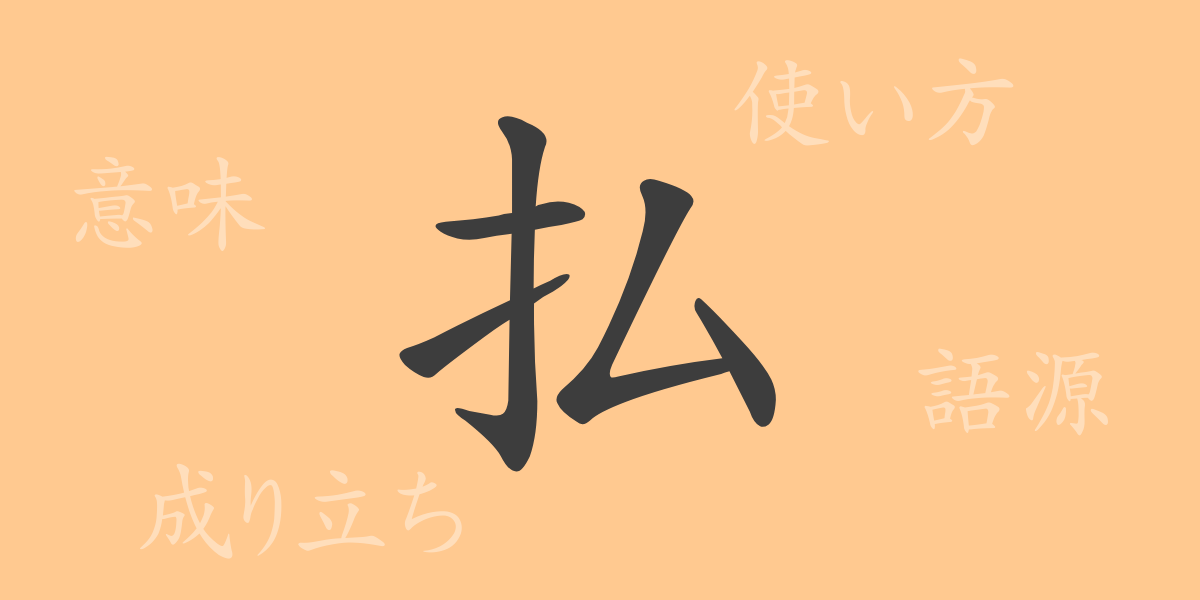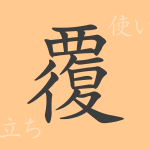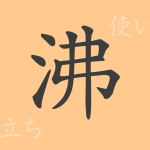The beauty of the Japanese language lies in the depth of history and meaning embedded within its characters. One of the commonly used kanji (漢字) is “払” (はらう, harau), frequently appearing in our daily lives. However, its origin and diverse applications are not widely known. In this article, we will delve into the etymology of “払” (はらう, harau), its meanings, usage, readings, and the idioms and expressions rooted in the Japanese psyche.
Origin of 払 (はらう, harau)
The kanji (漢字) “払” (はらう, harau) originates from ancient China. It originally combined the radical for “hand” (扌, てへん, tehen) with “廾” (こまぬき, komanuki), depicting the action of “sweeping away with a hand.” Over time, this action evolved to encompass meanings such as “to pay,” “to purify,” and “to remove,” and it continues to be used in modern times.
Meaning and Usage of 払 (はらう, harau)
“払” (はらう, harau) is primarily used to mean “to pay,” “to sweep away,” and “to purify.” It covers a broad concept of “removing” visible and invisible things, such as paying money, sweeping away objects, and purifying the mind.
Readings, Stroke Count, and Radical of 払 (はらう, harau)
The readings, stroke count, and radical of the kanji (漢字) “払” (はらう, harau) are as follows:
- Readings: On’yomi (音読み, onyomi) is “ヒツ” (hitsu), and Kun’yomi (訓読み, kunyomi) includes “はらう” (harau) and “ふるう” (furuu).
- Stroke count: 5 strokes
- Radical: 扌 (てへん, tehen)
Idioms, Expressions, and Proverbs Using 払 (はらう, harau)
Idioms, expressions, and proverbs containing “払” (はらう, harau) are abundant in the Japanese language. Expressions such as “払い下げる” (はらいさげる, haraisageru – to dispose of surplus), “払い戻す” (はらいもどす, haraimodosu – to refund), and “手を払う” (てをはらう, te o harau – to refuse help) are used in various situations.
Conclusion on 払 (はらう, harau)
Although “払” (はらう, harau) is frequently used in daily life, it carries a rich history and meaning. By understanding its deeper significance, the expressions in the Japanese language become more enriched. Through this exploration, we have uncovered the multifaceted aspects of “払” (はらう, harau).

























